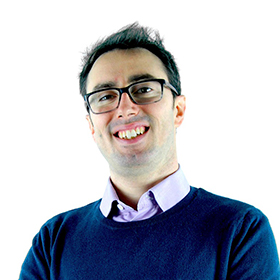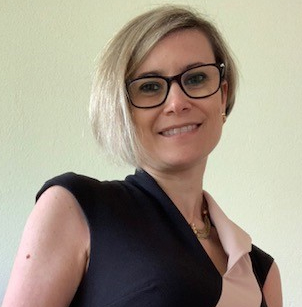By Roberta Veneroni
In the “new normal” post COVID-19, how can genomics labs be better prepared to respond quickly to the unexpected? How can they deliver reliable and insightful genetic sequencing results faster and more efficiently? What is the best way to scale up operations without being limited by benchtop tasks? In this article, Tecan talks to Dr. Davide Scaglione, CTO of the innovative NGS service provider IGATech, to get his perspective on how to embrace the new normal and put the latest genomics technologies to work to improve the health of humans, animals, and the planet.

Genetic sequence information is key to cracking many of the world's most pressing problems. As Italy’s leading NGS service provider, IGATech has a growing reputation as an innovator in strategies for genotyping and advanced genomic research. They have sequenced the DNA of more than 250 types of organisms and applied their expertise across diverse areas such as tracing food origin and safety, increasing the efficiency of plant and animal breeding, improving diagnostics and routine clinical care, and supporting sustainable development. Who better, then, to comment on the challenges of thriving in today’s demanding research environment?

Davide Scaglione is Chief Technology Innovation Officer at IGATech. He is in charge of the development of new sequencing-based applications, bioinformatics operations and coordinates business activities. After his PhD in plant genetics at the University of Turin in collaboration with the University of Georgia, he spent a one-year post-doc at the Genome Center in Davide (California). He also worked as Head of Innovative Analytical Development at Merck KGaA. He authored several scientific publications, mainly in plant genomics and bioinformatics. His major application focuses are genotyping systems, de novo assembly techniques and integration of customized protocols with analytical pipelines.
Dr. Scaglione, what was the driving force behind the creation of IGATech?
Our company has its roots in the Institute of Applied Genomics (IGA), which initially became renowned for its work in plant genetics and has grown into a leading center of excellence for structural and functional genomics in living organisms. In 2009, the IGA established IGATech as an NGS service company, equipping it with the latest Illumina and third-generation sequencing platforms. Today we are the number one provider of genomic research services in Italy. Our mission is to support research and industries to help them apply the power of genomics to address important biological questions in whatever organisms are most appropriate.
How are you helping your customers solve today’s big challenges in genomics research?
Questions in genomics are by nature very complex and it often takes a tailored approach to ensure robust and meaningful results. That means many of our customers need a more dedicated service than they could get with a typical NGS service provider.
Our company’s vision is to support our customers beyond simply providing the sequencing capability. We take the time to explore and understand their finer goals, select the best methodologies and bioinformatics strategies for their project, and help them implement solutions that will deliver robust answers to their questions. The added value is that the customer comes to us, explains what they want to achieve, and then they can trust us to provide the best solution for them. We are not trying to give them a one-size-fits-all paradigm. This really differentiates us from NGS service providers who take a more commoditized approach.
Tell us more about the types of solutions and services you provide.
These can essentially be grouped into three main areas. The first is our core genomics research service, where we apply state-of-the-art sequencing and bioinformatics methods to explore genome structure and function in many different contexts—from soil metagenomics to the transcriptomics or epigenetics of space-ship specimens. The second focus key is Agri-genomics, where we apply custom-tailored genotyping-by-sequencing techniques—often coupled with de novo assembly of genomes—to help researchers and food producers in their breeding programs and to understand the molecular basis of traits that are important for commercialization or for preservation of species. The third—and most recent—area of application is the characterization of genetically engineered cell lines for production of biologics or to be applied in regenerative medicines.
As an NGS service provider, what are some of the challenges you and your customers face in today’s evolving research environment?
Shifting our focus from a commoditized to a customized approach means we have a greater heterogeneity of applications than many of our competitors. That means we are always developing new protocols to offer the best service to our customers. It’s not just a case of continuous improvement, but also of continuously reshaping our procedures, which is time-consuming. Flexibility is key because each new project can be very different from the last in terms of the strategies and protocols involved.
As the pandemic has shown us, in our crowded and highly mobile world, new and serious threats can arise unexpectedly, which means we and our customers need to be prepared to adapt and respond at short notice. Customized NGS services are going to be in increasing demand as these global pressures continue to escalate and the questions we are asking get more complex. Also, as our customers potentially feel the bite of tighter budgets, workforce limitations and time pressures, they will need this type of dedicated support to deliver on their commitments.
What steps is IGATech taking to meet these challenges?
To satisfy the growing demand and stay competitive, we know we will need to standardize procedures wherever possible, and automation can really help here. For example, much of the NGS sample preparation process can be completely automated—not only library preparation but also DNA extraction, quantification and normalization.
Ideally, with the right automation platform in place, we would be able to take in any type of raw material—such as plant leaves, blood or tissue—and implement compatible protocols to allow nucleic acid extraction and preparation of high quality libraries without disrupting operations in the lab. This would not only increase productivity, but also fit with our customer-oriented strategy, because it would enable us to offer our customers a more complete solution. They just provide the raw material, and we return the insights.
Our plan is to implement our most common preparation applications—such as those for RNA-Seq, DNA-Seq, and maybe also one day Meta-Seq—on a fully automated walk-away platform that is designed specifically for the types of challenges we are facing. This will allow us to scale up the volume of our most common applications without overwhelming benchtop operations. This will also free up expert staff to focus on the communication with clients, experimental designs and data review that are our main value propositions.
Perhaps most importantly, having a fully fledged automation system should improve the integrity of the whole process, because it would make the process more resilient to human errors and increase reproducibility, minimizing batch effect in large studies. This brings added value to our customers, and that is absolutely key for us.
You mentioned having DNA quantification and normalization integrated into automated workflows for NGS – why is that so crucial?
Good question. We are currently running a lot of applications based on Tecan’s Allegro Targeted Genotyping system and standard genotyping-by-sequencing methods. Both methods involve pooling materials, which means that accurate quantification and normalization are critical to the quality of the result.
The problem is that these procedures are labor-intensive and time-consuming. So, we can spend up to half the time just for quality control and normalizing large batches of samples. That means we’re spending half the time on relatively trivial tasks, which are nevertheless key to avoiding experimental failure. So having this part of the process hands-off and completely automated is the right way to go for us. Not only could automation cut the total time almost in half, but it would also take a lot of error out the process.
What do you see next on the horizon when it comes to automation?
Fortunately, full integration and automation of the entire NGS workflow is now available for the first time with the DreamPrepTM NGS workstation. The number of applications and compatibility with commercial kit protocols is already extensive and growing. Looking to the future, it will be important to anticipate where the high volume analysis will be so we can extend this completely hands-off approach to those areas. For example, long read sequencing is becoming more mainstream, so there will likely be a lot of research that needs to be repeated from scratch. At some point, the increase in volumes may justify having a complete automation solution for that workflow. Similarly, single cell sequencing is another trend that could lead to a lot of research that was done with RNA-Seq being repeated at the single-cell level. We are also collaborating with industries for a production-oriented implementation of NGS. Our perception is that while NGS has continued to rapidly evolve and release fascinating methods and insights year after year, an effective application of NGS in more niche contexts still demands a higher degree of reproducibility; automation is one the first steps to make NGS a more appealing asset to industries. Close collaboration between genomics technology innovators and Tecan is sure to lead to exciting new developments.
Challenging times call for new approaches
To find out more about how Tecan solutions are supporting innovators like IGATech to push the boundaries of genomic research, visit our website for the latest information.
DreamPrep™ and Allegro® are approved for research use only. Not for use in clinical diagnostic procedures.
About the author

Roberta Veneroni
Dr. Roberta Veneroni is a Product and Applications Manager at Tecan with a focus in the field of Genomics. She has more than 10 years’ experience in developing assays and product management in the automation industry. She studied Biotechnology at the University of Milan, Italy, with orientation in cancer research in her PhD studies at the University of Eastern Piedmont in Novara, Italy. She has gained research experience at the UCI in the USA. When she joined the industry, she attended an international MBA at the ZHAW, Switzerland, focusing on globalization, multi-cultural environments and emerging markets. She joined Tecan in 2019 as responsible for the NGS liquid handling product portfolio.











